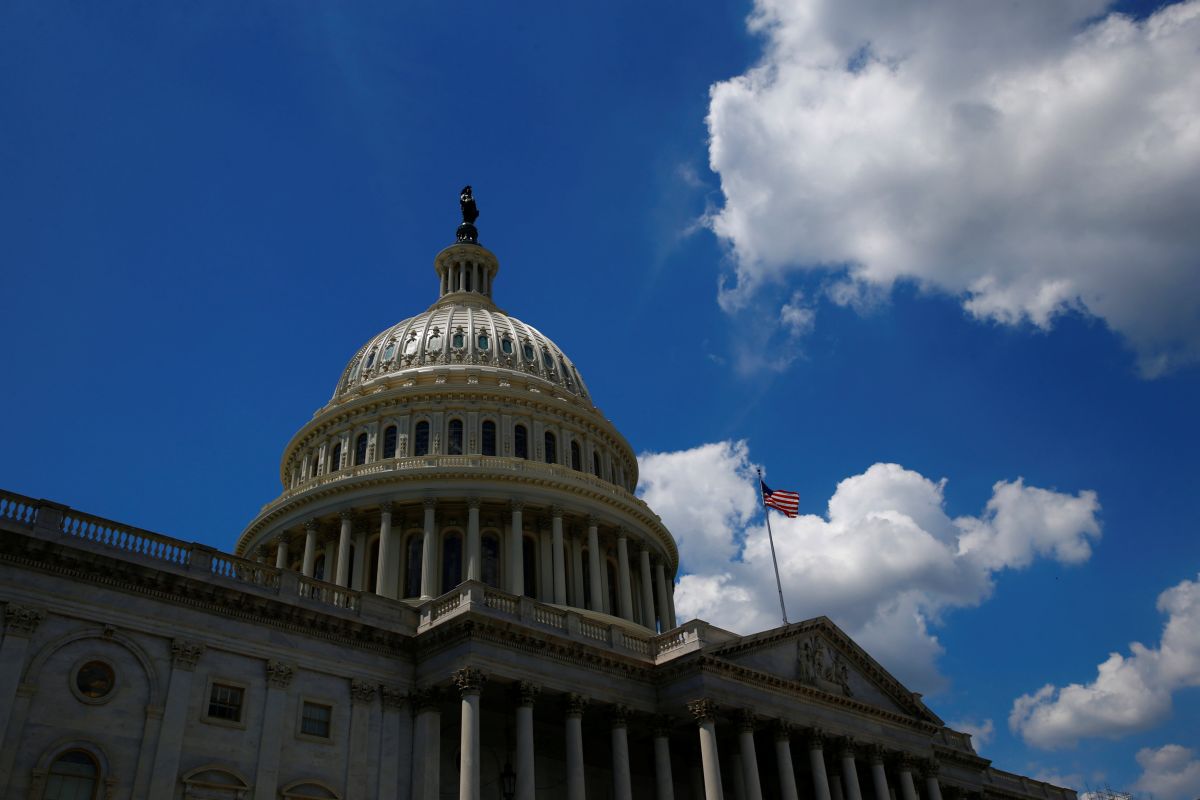
The legislation all but dashes Trump's hopes for warmer ties with Moscow as his administration is dogged by congressional and special counsel investigations into Russian meddling in the 2016 U.S. presidential election to sway it in Trump's favor, Reuters said.
Russian President Vladimir Putin, who has repeatedly denied the conclusions of U.S. intelligence agencies that Moscow interfered using cyber warfare methods, has threatened retaliation against the legislation.
The Senate backed the bill, which also imposes sanctions on Iran and North Korea, by a margin of 98-2 with strong support from Trump's fellow Republicans as well as Democrats.
The bill, which includes a provision that allows Congress to stop any effort by Trump to ease existing sanctions on Russia, will now be sent to the White House for Trump to sign into law or veto.
It is the first major foreign policy legislation approved by Congress under Trump, who has struggled to advance his domestic agenda despite Republicans controlling the Senate and House of Representatives. The strong bipartisan support for the bill was a sharp contrast to the bitter partisan rancor during debate over how to overhaul the U.S. healthcare system.
Read alsoTrump likely to sign new sanctions bill with measures targeting Russia — mediaIf Trump chooses to veto it, the bill is expected to garner enough support in both chambers to override his veto and pass it into law. The sanctions measure has already passed the House of Representatives by 419 to three votes.
Republicans and Democrats have pushed for more sanctions partly as a response to the election allegations. Trump denies any collusion between his campaign and Moscow.
Senator John McCain, a leading congressional voice calling for a firm line against Russia, said before the vote: "The United States of America needs to send a strong message to Vladimir Putin and any other aggressor that we will not tolerate attacks on our democracy."
Read alsoPutin on new U.S. sanctions: "Impossible to constantly tolerate loutish behavior"Putin said Moscow would only decide on how to retaliate once it had seen the final text of the proposed law.
The bill would affect a range of Russian industries and might further hurt the Russian economy, already weakened by 2014 sanctions imposed after Russia annexed Crime from Ukraine.
Besides angering Moscow, the legislation has upset the European Union, which has said the new sanctions might affect its energy security and prompt it to act, too.
The legislation also cracks down on Iran and North Korea for activities including their missile development programs and human rights abuses, including seeking to punish foreign banks that do business with North Korea.
Earlier on Thursday, a senior White House aide said Trump could veto the pending legislation in order to push for a tougher deal, an idea that drew skepticism in Congress because his administration had spent weeks lobbying for a weaker bill.
"He may sign the sanctions exactly the way they are or he may veto the sanctions and negotiate an even tougher deal against the Russians," White House Communications Director Anthony Scaramucci told CNN.
The White House said it would comment on the sanctions bill when they get it and have a chance to review it. A White House official said it could take a couple of days before the legislation gets to Trump's desk.
On Thursday before the Senate vote, White House Press Secretary Sarah Sanders said the Trump administration continues to support strong sanctions against Russia, North Korea and Iran, adding "we're going to wait and see what that final legislation looks like and make a decision at that point."
Trump can impose new sanctions at any time through an executive order.
Once Trump receives the bill, if he does not sign it, he has 10 days, excluding Sundays, before he must issue a veto and prevent the bill from becoming law automatically.
If he opts for a veto, the bill can become law anyway if two-thirds of both the House and Senate vote for an override.

